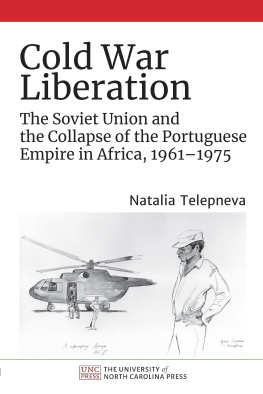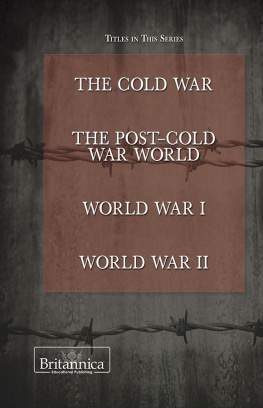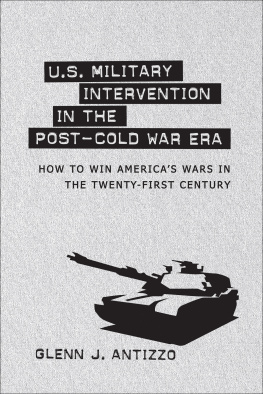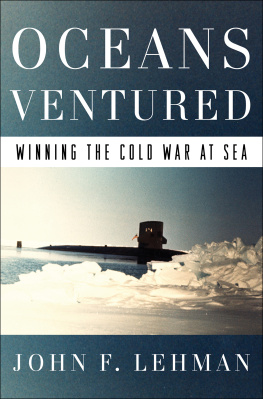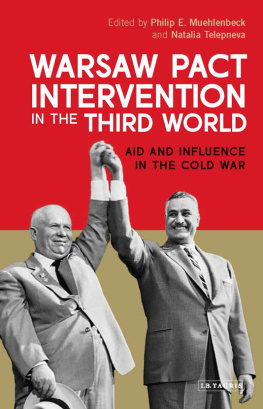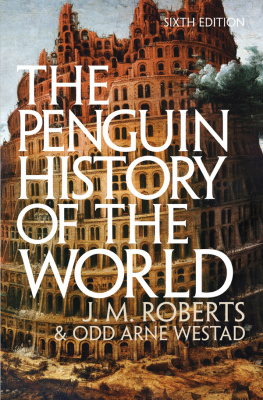
An Analysis of
Odd Arne Westads
The Global Cold War
Glen Patrick

Copyright 2017 by Macat International Ltd
24:13 Coda Centre, 189 Munster Road, London SW6 6AW.
Macat International has asserted its right under the Copyright, Designs and Patents Act
1988 to be identified as the copyright holder of this work.
The print publication is protected by copyright. Prior to any prohibited reproduction, storage in a retrieval system, distribution or transmission in any form or by any means, electronic, mechanical, recording or otherwise, permission should be obtained from the publisher or where applicable a license permitting restricted copying in the United Kingdom should be obtained from the Copyright Licensing Agency Ltd, Barnards Inn, 86 Fetter Lane, London EC4A 1EN, UK.
The ePublication is protected by copyright and must not be copied, reproduced, transferred, distributed, leased, licensed or publicly performed or used in any way except as specifically permitted in writing by the publishers, as allowed under the terms and conditions under which it was purchased, or as strictly permitted by applicable copyright law. Any unauthorised distribution or use of this text may be a direct infringement of the authors and the publishers rights and those responsible may be liable in law accordingly.
www.macat.com
info@macat.com
Cover illustration: Etienne Gilfillan
Cataloguing in Publication Data
A catalogue record for this book is available from the British Library.
ISBN 978-1-912302-79-6 (hardback)
ISBN 978-1-912128-57-0 (paperback)
ISBN 978-1-912281-67-1 (e-book)
Notice
The information in this book is designed to orientate readers of the work under analysis, to elucidate and contextualise its key ideas and themes, and to aid in the development of critical thinking skills. It is not meant to be used, nor should it be used, as a substitute for original thinking or in place of original writing or research. References and notes are provided for informational purposes and their presence does not constitute endorsement of the information or opinions therein. This book is presented solely for educational purposes. It is sold on the understanding that the publisher is not engaged to provide any scholarly advice. The publisher has made every effort to ensure that this book is accurate and up-to-date, but makes no warranties or representations with regard to the completeness or reliability of the information it contains. The information and the opinions provided herein are not guaranteed or warranted to produce particular results and may not be suitable for students of every ability. The publisher shall not be liable for any loss, damage or disruption arising from any errors or omissions, or from the use of this book, including, but not limited to, special, incidental, consequential or other damages caused, or alleged to have been caused, directly or indirectly, by the information contained within.
Contents
The Macat Library
The Macat Library is a series of unique academic explorations of seminal works in the humanities and social sciences books and papers that have had a significant and widely recognised impact on their disciplines. It has been created to serve as much more than just a summary of what lies between the covers of a great book. It illuminates and explores the influences on, ideas of, and impact of that book. Our goal is to offer a learning resource that encourages critical thinking and fosters a better, deeper understanding of important ideas.
Each publication is divided into three Sections: Influences, Ideas, and Impact. Each Section has four Modules. These explore every important facet of the work, and the responses to it.
This Section-Module structure makes a Macat Library book easy to use, but it has another important feature. Because each Macat book is written to the same format, it is possible (and encouraged!) to cross-reference multiple Macat books along the same lines of inquiry or research. This allows the reader to open up interesting interdisciplinary pathways.
To further aid your reading, lists of glossary terms and people mentioned are included at the end of this book (these are indicated by an asterisk [*] throughout) as well as a list of works cited.
Macat has worked with the University of Cambridge to identify the elements of critical thinking and understand the ways in which six different skills combine to enable effective thinking.
Three allow us to fully understand a problem; three more give us the tools to solve it. Together, these six skills make up the PACIER model of critical thinking. They are:
ANALYSIS understanding how an argument is built
EVALUATION exploring the strengths and weaknesses of an argument
INTERPRETATION understanding issues of meaning
CREATIVE THINKING coming up with new ideas and fresh connections
PROBLEM-SOLVING producing strong solutions
REASONING creating strong arguments
To find out more, visit WWW.MACAT.COM.
Critical Thinking and The Global Cold War
Primary critical thinking skill: CREATIVE THINKING
Secondary critical thinking skill: REASONING
For those who lived through the Cold War period, and for many of the historians who study it, it seemed self-evident that the critical incidents that determined its course took place in the northern hemisphere, specifically in the face-off between NATO and the Warsaw Pact in Europe. In this view, the Berlin Wall mattered more than the Ho Chi Minh Trail, and the Soviet intervention in Hungary was vastly more significant than Soviet intervention in Korea. It was only the fine balance of power in the northern theatre that redirected the attentions of the USA and the USSR elsewhere, and resulted in outbreaks of proxy warfare elsewhere in the globe - in Korea, in Vietnam and in Africa.
Odd Arne Westads triumph is to look at the history of these times through the other end of the telescope to reconceptualize the Cold War as something that fundamentally happened in the Third World, not the First. The thesis he presents in The Global Cold War is highly creative. It upends much conventional wisdom and points out that the determining factor in the struggle was not geopolitics, but ideology an ideology, moreover, that was heavily flavoured by elements of colonialist thinking that ought to have been alien to the mindsets of two avowedly anti-colonial superpowers. Westads work is a fine example of the creative thinking skill of coming up with new connections and fresh solutions; it also never shies away from generating new hypotheses or redefining issues in order to see them in new ways.
ABOUT THE AUTHOR OF THE ORIGINAL WORK
A multilingual historian who writes and lectures in English, French, Chinese, German, Russian, and Norwegian, Odd Arne Westad was born in lesund, a port town on Norways west coast, in 1960. As a young aid worker, he witnessed first hand the effects of United States and Soviet Union interventionist foreign policies in countries outside Europe. These experiences shaped Westads enduring interest in the Cold War period and its overlooked global impact.


